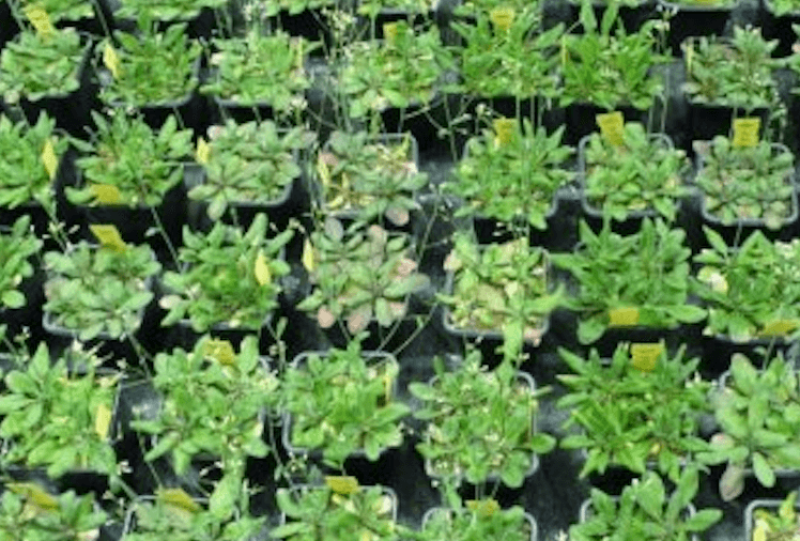Diverse communities of plants and animals typically perform better than monocultures. However, the mechanisms that are responsible for this have so far been a mystery to science. Biologists [from the University of Zurich] have now been able to identify the genetic cause of these effects. Their findings might help to improve crop yields.
…
[M]odern agricultural practice mainly relies on plant varieties that are genetically uniform …. The benefits of diverse communities therefore remain untapped, also because the underlying mechanisms are not yet fully understood. [R]esearchers addressed this question by [focusing] on common wallcress …. a small crucifer that is genetically well documented. They used systematic crosses of varieties of these plants, which were grown in pots in different combinations. After a few weeks, the researchers weighed the resulting biomass, which allowed them to compare the growth of the plants. As expected, pots with mixtures of different crosses were indeed more productive on average. [T]he researchers then related the yield gain in mixed communities to the genetic makeup of the crosses. The genetic map they obtained in this way enabled them to identify the parts of the genome that made the combination of plants good mixed teams.…
[Their method may help to breed plants that are good team players and thus yield more crops. “Our insights open up completely new avenues in agriculture,” adds [Samuel Wüst, main author of the study].Read full, original article: Small genetic differences turn plants into better teams































